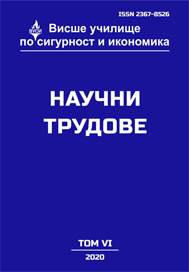Руската дипломация в Близкия изток и завръщането ѝ в района на Средиземноморието. Политика на взаимодействие и противопоставяне със Сирия, Израел, Иран и Турция
Russian diplomacy in the Middle East and its return to the Mediterranean. Policy of interaction and opposition with Syria, Israel, Iran and Turkey
Author(s): Yordan Ivanov BakalovSubject(s): Politics / Political Sciences, Politics, International relations/trade, Security and defense, Military policy
Published by: Висше училище по сигурност и икономика (ВУСИ)
Keywords: Russia; Israel; Iran; Turkey; geopolitics; S-400
Summary/Abstract: Russia's foreign policy aspirations have always combined elements of geopolitics and the competition of the great powers with ideology and religion. For Russian analysts, geography has obvious implications for Russia's national security and drives their geopolitical ambitions. Serious developments in Russian- Israeli relations occurred after Vladimir Putin was nominated for President of Russia in 2000 and Ariel Sharon in 2001, respectively. Russia's military intervention in Syria in 2015 was as important for Syria itself and for the other countries indirectly involved in the conflict, as much as for Russian-Israeli relations. Russia's military involvement in Syria has also had a significant impact on its relations with Iran, Russia's oldest and closest partner in the Middle East since the Cold War era. Russian- Iranian relations have withstood many challenges. Turkey's move to Russia has deeper reasons, some of which are too personal for Turkish leaders, and is longer than the creation of the S-400 episode and rapprochement with Russia as a major regional player in the Syrian conflict.
Journal: Научни трудове - Висше училище по сигурност и икономика
- Issue Year: VI/2020
- Issue No: 1
- Page Range: 96-131
- Page Count: 36
- Language: Bulgarian

